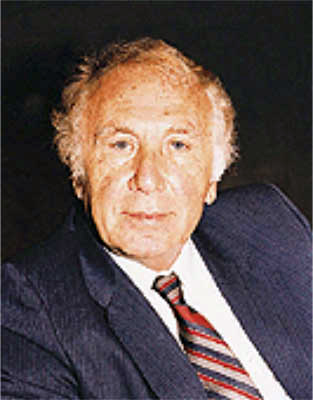Nizar Qabbani was born in the Syrian capital of Damascus to a middle class merchant family. Qabbani was raised in Mi'thnah Al-Shahm, one of the neighborhoods of Old Damascus. Qabbani studied at the national Scientific College School in Damascus between 1930 and 1941. The school was owned and run by his father's friend, Ahmad Munif al-Aidi. He later studied law at the Damascus University, which was called Syrian University until 1958. He graduated with a bachelor's degree in law in 1945.
While a student in college he wrote his first collection of poems entitled The Brunette Told Me. It was a collection of romantic verses that made several startling references to a woman's body, sending shock waves throughout the conservative society in Damascus. To make it more acceptable, Qabbani showed it to Munir al-Ajlani, the minister of education who was also a friend of his father and a leading nationalist leader in Syria. Ajlani liked the poems and endorsed them by writing the preface for Nizar's first book.
 After the death of Balqis, Qabbani left Beirut. He was moving between Geneva and Paris, eventually settling in London, where he spent the last 15 years of his life. Qabbani continued to write poems and raise controversies and arguments. Notable controversial poems from this period in his life include When Will They Announce the Death of Arabs? and Runners.
After the death of Balqis, Qabbani left Beirut. He was moving between Geneva and Paris, eventually settling in London, where he spent the last 15 years of his life. Qabbani continued to write poems and raise controversies and arguments. Notable controversial poems from this period in his life include When Will They Announce the Death of Arabs? and Runners.In 1997, Nizar Qabbani suffered from poor health and briefly recovered from his sickness in late 1997.[9] A few months later, at the age of 75, Nizar Qabbani died in London on 30 April 1998 of a heart attack. In his will, which he wrote in his hospital bed in London, Nizar Qabbani wrote that he wished to be buried in Damascus, which he described in his will as "the womb that taught me poetry, taught me creativity and granted me the alphabet of Jasmine." Nizar Qabbani was buried in Damascus four days later in Bab Saghir. Qabbani was mourned by Arabs all over the world, with news broadcasts highlighting his illustrious literary career.